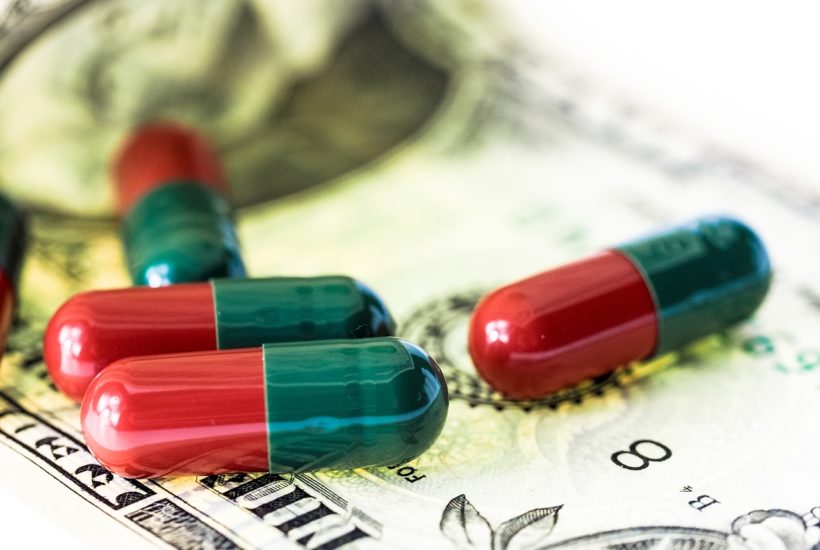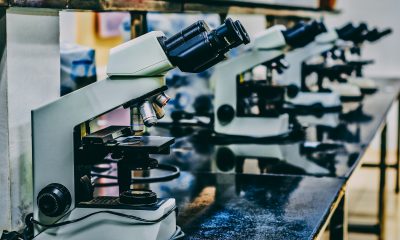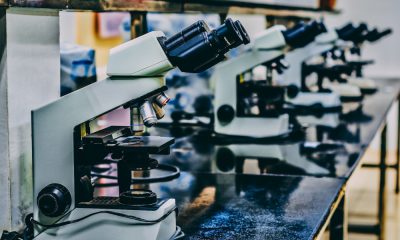Biotech
The Biopharmaceutical Sector’s Return on R&D Investment Grows by 2.5%
The biopharmaceutical sector has registered an increase of 2.5% in R&D investments in 2020, according to the most recent study conducted by Deloitte. The report reveals that the biopharmaceutical sector’s return on investment in R&D saw a slight increase of 0.9% in 2020 compared to the previous year. The average cost of developing drugs is also increasing.

Although 2020 was a challenging year for all sectors, due to the Covid-19 pandemic, biopharma provided an encouraging note. The biopharma industry’s return on R&D investment grew for the first time since 2014. In fact, it increased from 1.6% in 2019 to 2.5% in 2020. This is indicated by data from the recent international study Seeds of change. Measuring the return from pharmaceutical innovation 2020 conducted by Deloitte.
This work analyzes each year the expected return on R&D investments that a group of 15 leading biopharmaceutical companies from around the world expect to achieve from their late-stage product pipeline. In this eleventh edition, the report reveals that the return on investment has seen a slight increase of 0.9% in 2020 compared to the previous year. Although this indicator has a cumulative historical decline of 7.6% since 2010, when the return stood at 10.1%, this growth of almost 1% marks a rebound towards recovery.
The report reveals that the biopharmaceutical sector’s return on investment in R&D saw a slight increase of 0.9% in 2020 compared to the previous year
“Pharmaceutical companies must address the sector’s transformational challenges in order to respond to the growing complexity of drug development with ever-longer lead times. This is especially true for biologic drugs. In addition to increased competition in the enrollment of participants for clinical trials and the increase in the failure rate already in Phase III, there are also regulatory requirements related to safety, efficacy and even data collection and processing during the clinical phase,” said Iñaki Moreno, partner in charge of the Life Sciences and Healthcare industry at Deloitte.
Read more about the biopharmaceutical sector and find the most important economic news with the Born2Invest mobile app.
The average cost of developing a drug is also increasing
On the other hand, the average cost of developing and marketing a new drug continues to grow. In fact, it has rebounded by 2% since 2019, reaching $2.442 billion in 2020. Even so, the report’s history reflects an increase of 105% since the first study was prepared in 2010. In that year, companies put these costs at around $1.2 billion.
Iñaki Moreno (Deloitte): “Pharmaceutical companies must address the transformational challenges of the sector in order to respond to the growing complexity of drug development.”
In this regard, Moreno explained that “the two reasons for this increase in cost are the continuous increase in the average development time of a drug and the cost of failed developments, especially when they are in their last stages. Organizations must approach the resolution of these problems holistically, exploit the multidisciplinary capabilities of talent; rely on new technologies and develop and implement a strategy around data management; from an analytical point of view, but also from a regulatory and security point of view.”
With respect to sales per asset, the report speaks of a slowdown in their sustained decline. Thus, they have increased for the first time since 2013, rising from $357 million in 2019 to $465 million in 2020. This represents an increase of 17.9% and once again surpassing the $400 million barrier. In the overall calculation of the study, this figure translates into a cumulative decrease of $351 million compared to 2010, nearly 50%. At that time, companies were forecasting peak sales of $816 million on average.
The impact of Covid-19
From the first quarter of 2020, the search for Covid-19 treatments and vaccines drove innovation at an unprecedented pace. However, many non-Covid-19 clinical trials were also delayed and even halted. Specifically, the report details that the pandemic negatively impacted the research and development cycles of approximately 1,210 non-Covid-19 trials.
Oncology was the therapeutic specialty most affected by the Covid-19 pandemic, with 26% of all trials underway canceled or delayed.
Of these, 66% were delayed in their start-up or completion and 29% were in Phase III. This directly affects future drug launches and sales. In addition, 8% were directly suspended or withdrawn. Specifically, oncology was the therapeutic specialty most affected. Approximately 26% of the total number of trials or studies launched before the pandemic were canceled or delayed.
According to Moreno, “collaboration between companies and research centers has been fundamental to urgently find a remedy against Covid-19. This has shortened the research and development period to unprecedented times in the development of therapies and vaccines. In this context, the pandemic also accelerated the adoption of innovative R&D approaches in the industry; triggering the implementation of disruptive digital technologies, such as AI or Big Data in traditional trial operations.”
Moreno: “Clinical phases will evolve, with progressively more virtual and decentralized clinical trial designs, and more precise patient cohorts”
A look into the future of R&D investments
The data in this report highlight the need to transform the traditional R&D models used by the biopharmaceutical sector. Thus, in order to remain one of the main drivers of healthcare systems, innovation, technology, and talent are key to reversing this trend.
Looking to the future, Moreno said that greater regulatory flexibility is expected. However, “the focus on personalized therapies will continue to add complexity to drug development, with increasing demands in terms of efficacy and safety. Clinical phases will evolve, with progressively more virtual and decentralized clinical trial designs and more precise patient cohorts. All that thanks to a better understanding of genomics in relation to diseases. Finally, access to massive data from different databases and devices will force companies to develop competencies around Artificial Intelligence and contribute to improving drug efficacy.”
__
(Featured image by TBIT via Pixabay)
DISCLAIMER: This article was written by a third party contributor and does not reflect the opinion of Born2Invest, its management, staff or its associates. Please review our disclaimer for more information.
This article may include forward-looking statements. These forward-looking statements generally are identified by the words “believe,” “project,” “estimate,” “become,” “plan,” “will,” and similar expressions. These forward-looking statements involve known and unknown risks as well as uncertainties, including those discussed in the following cautionary statements and elsewhere in this article and on this site. Although the Company may believe that its expectations are based on reasonable assumptions, the actual results that the Company may achieve may differ materially from any forward-looking statements, which reflect the opinions of the management of the Company only as of the date hereof. Additionally, please make sure to read these important disclosures.
First published in iSanidad, a third-party contributor translated and adapted the article from the original. In case of discrepancy, the original will prevail.
Although we made reasonable efforts to provide accurate translations, some parts may be incorrect. Born2Invest assumes no responsibility for errors, omissions or ambiguities in the translations provided on this website. Any person or entity relying on translated content does so at their own risk. Born2Invest is not responsible for losses caused by such reliance on the accuracy or reliability of translated information. If you wish to report an error or inaccuracy in the translation, we encourage you to contact us.

-

 Fintech2 weeks ago
Fintech2 weeks agoImpacta VC Backs Quipu to Expand AI-Driven Credit Access in Latin America
-

 Fintech1 day ago
Fintech1 day agoSwissHacks 2026 to Launch Inaugural Swiss FinTech Week in Zurich
-

 Impact Investing1 week ago
Impact Investing1 week agoClimate Losses Drive New Risk Training in Agriculture Led by Cineas and Asnacodi Italia
-

 Crowdfunding4 days ago
Crowdfunding4 days agoReal Estate Crowdfunding in Mexico: High Returns, Heavy Regulation, and Tax Inequality






















